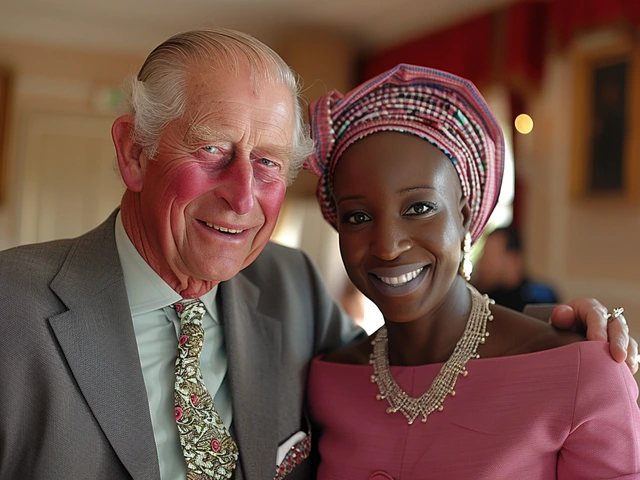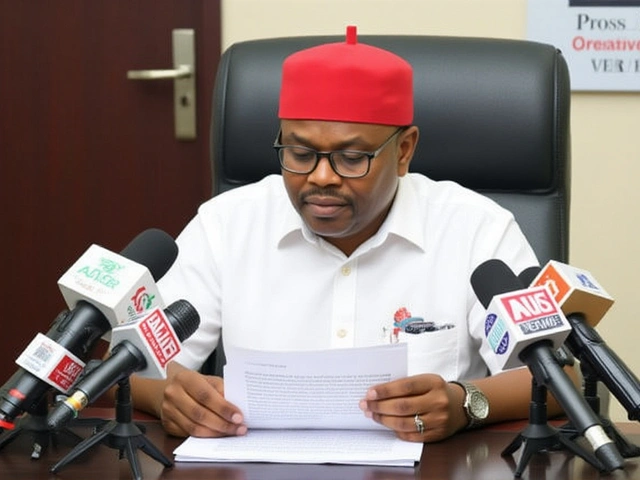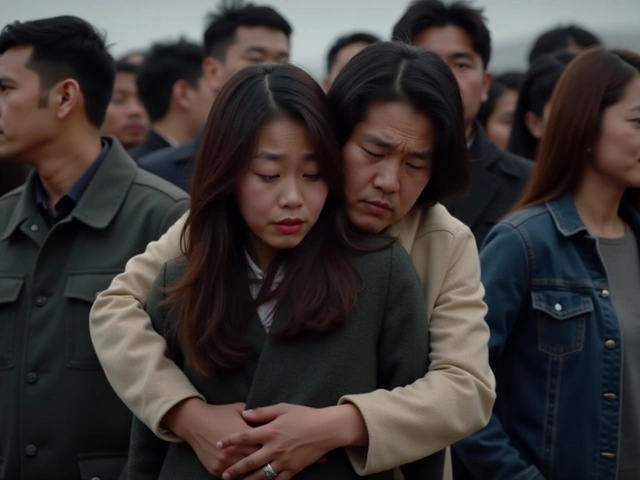Introduction
In a tumultuous turn of events, Faiza Shaheen, the Labour candidate who was set to challenge Sir Iain Duncan Smith in the north London seat, has been barred from running. This move has prompted Shaheen to accuse the Labour Party of deliberately purging socialists and left-wing voices. An academic known for her outspoken views, Shaheen alleges that the current Labour leadership under Sir Keir Starmer is sidelining candidates who dare to speak out on contentious issues such as Palestine.
The Accusations
Shaheen has been vocal about her belief that her exclusion was not merely an isolated incident but part of a broader effort to cleanse the party of left-wing elements. She claims that the Labour Party, now enjoying a comfortable lead in the polls, feels emboldened to take risks with candidates and seats, opting for more controllable, centrist figures over vocal socialists. According to Shaheen, this strategy is aimed at creating a party that is more aligned with Starmer's vision, which she critiques as being overly cautious and centrist.
This elitist gatekeeping, Shaheen argues, extends to sidelining voices that advocate for anti-imperialist positions. She specifically points to her support for the Palestinian cause as a contributing factor to her exclusion. The decision to bar her was made by a panel from the Labour Party's national executive committee (NEC) following allegations that she liked social media posts that downplayed anti-Semitism accusations within the party.

Legal Battle Ahead
In response to her barring, Shaheen has instructed a lawyer to challenge the NEC's decision. She is appealing directly to Sir Keir Starmer and the party's general secretary, David Evans, to reconsider and allow her to run. Shaheen's exclusion has not only stirred controversy but has also triggered a debate within Labour's ranks about the direction in which the party is headed.
More intriguingly, Shaheen has found an ally in Labour's deputy leader, Angela Rayner, who, despite Starmer's stance, has called for faith in the selection of candidates like Diane Abbott, who has faced similar party resistance. Rayner's support indicates that there may be factional divides within Labour's top tier, with some leaders pushing for a more inclusive approach.
Cultural Issues within Labour
Shaheen's criticisms don't stop at political strategy; she has gone further to allege that the Labour Party has systemic issues concerning race and bullying. She contends that the party has a troubling relationship with black and brown people, with ingrained practices that disfavor minority candidates. These claims add a layer of urgency to her appeal, as they suggest that her exclusion is emblematic of deeper issues within the party.
The allegations of bullying contribute to a growing narrative that Labour's internal culture may need reform. Shaheen's experiences are not isolated; other members have similarly reported a toxic atmosphere that stifles dissent and marginalizes outspoken voices.

Labour's Response
Sir Keir Starmer has denied any orchestrated purge of left-wing candidates, maintaining that the priority is to select the highest-quality candidates to represent Labour in the upcoming elections. Starmer's response aims to dispel the notion of a targeted campaign against socialists within the party. However, the growing number of similar accounts from different factions within Labour suggests that the issue may not be so easily dismissed.
The Labour Party has yet to make a formal comment on Shaheen's specific allegations. As the situation unfolds, it remains to be seen how Starmer's leadership will address these internal rifts and the accompanying criticisms.
Poll Position and Electoral Strategy
With Labour polling ahead of their rivals, the party's strategy appears to be focused on maintaining this advantage by presenting a united, centrist front. This approach, however, is not without risks. By sidelining left-wing candidates, the party may alienate a significant portion of the electorate who feel that their views are being marginalized. Shaheen's barring could thus serve as a litmus test for Labour's broader electoral strategy.
The current political climate in the UK is one of considerable flux, and maintaining a lead in the polls requires careful navigation of internal and external challenges. Starmer's approach reflects a calculation that a more centrist, controlled candidate lineup will appeal to a broader swath of voters. Whether this calculation will pay off in the long term remains to be seen.

Conclusion
Faiza Shaheen's exclusion from running in the upcoming election has sparked a contentious debate within the Labour Party. Her accusations of a targeted purge of left-wing candidates, alongside claims of racial bias and bullying, highlight significant internal challenges that the party must address. As Labour continues to lead in the polls, the way the party handles these accusations and navigates its internal dynamics will be crucial in determining its future direction and electoral success.








HarDeep Randhawa
May 31, 2024 AT 23:39Wow!!! The party's so-called “purge” is just a classic power‑play, a backstage drama, and everyone sees the strings being pulled!!!
Nivedita Shukla
June 9, 2024 AT 07:39The very soul of a movement is measured not by the comfort of its leaders, but by the courage of those who dare to shout against the wind. Shaheen’s setback feels like a mirror held up to the party’s fear of authentic dissent. When you strip away the glossy PR, you find a battlefield of ideals, each vying for the right to speak. The left‑wing voice is not a peripheral whisper; it is the beating heart that keeps a party alive. Yet the NEC’s decision reads like a silent scream, demanding conformity over conviction. In the grand theater of politics, those who are silenced become the most potent symbols of resistance. The question is not whether the party will win the next election, but whether it will retain its moral compass. History will judge the cost of this quieting of radical thought.
Rahul Chavhan
June 17, 2024 AT 15:39Politics is a battlefield, and this is just another casualty.
Joseph Prakash
June 25, 2024 AT 23:39Shaheen’s story shows how quickly the narrative can shift 😕 the party’s stance feels like a calculated move to keep the image tidy 🙃.
Arun 3D Creators
July 4, 2024 AT 07:39What is a party but a vessel, and what is a vessel without its storm‑tossed sailors.
RAVINDRA HARBALA
July 12, 2024 AT 15:39Let’s cut to the chase: the NEC’s criteria have always been a moving target, and the “purge” rhetoric is just political theater. Data shows that candidates with strong grassroots support often get sidelined when they challenge the centroid. It’s not a new phenomenon – look back at the 2015 selections. The leadership’s priority is electability, not ideological purity, and that explains the current scramble. If you want a party that mirrors the electorate, you can’t cherry‑pick who gets a platform.
Vipul Kumar
July 20, 2024 AT 23:39Friends, it’s important to remember that every voice matters in a healthy democracy. Even if a candidate’s tactics seem aggressive, the underlying issues they raise deserve discussion. We should aim for a process that evaluates both competence and commitment to core values. Let’s keep the conversation civil and focus on building a platform that truly represents the people.
Priyanka Ambardar
July 29, 2024 AT 07:39Stop pretending everything is fine – the party is betraying its own base, and anyone who defends this is blind to the truth! 😡
sujaya selalu jaya
August 6, 2024 AT 15:39The party needs to address internal concerns and ensure fair treatment for all members.
Ranveer Tyagi
August 14, 2024 AT 23:39Exactly!!! The systemic issues you mention are not just whispers in a hallway – they’re loud alarms ringing across the whole organization!!! We have to call out the bias, call out the bullying, and demand real reforms now!!!
Tejas Srivastava
August 23, 2024 AT 07:39It’s like watching a drama unfold where the protagonists are hidden behind masks, and the audience is left guessing who will pull the next lever!!!
JAYESH DHUMAK
August 31, 2024 AT 15:39In examining the recent developments within the Labour Party, it is essential to adopt a comprehensive analytical framework that accounts for both structural and ideological dimensions. Firstly, the procedural mechanisms employed by the National Executive Committee warrant scrutiny, as they have historically been susceptible to partisan influences. Secondly, the internal discourse surrounding candidate selection reflects broader tensions between centrist pragmatism and left‑wing radicalism. Thirdly, the role of media narratives amplifies specific aspects of the controversy, thereby shaping public perception. Fourthly, the historical precedent of similar exclusions demonstrates a pattern that cannot be dismissed as an isolated incident. Fifthly, empirical evidence suggests that constituencies with strong socialist leanings experience disenfranchisement when moderate candidates are imposed. Sixthly, the interplay between personal political trajectories and party strategy contributes to the complexity of the situation. Seventhly, the allegations of racial bias introduce an additional layer of ethical concern that must be addressed. Eighthly, the reported instances of bullying signal a cultural malaise that threatens organizational cohesion. Ninthly, the leadership’s response, while framed as a commitment to quality, may inadvertently marginalize grassroots activism. Tenthly, the electoral calculus underpinning the selection process underscores the tension between winning votes and maintaining ideological integrity. Eleventhly, observers note that the party’s polling advantage could be jeopardized by alienating its traditional base. Twelfthly, the involvement of prominent figures such as the deputy leader adds a nuanced dimension to internal power dynamics. Thirteenthly, the legal avenues pursued by aggrieved candidates illustrate the potential for judicial review of party procedures. Fourteenthly, the broader implications for the left’s role in national politics extend beyond a single constituency. Finally, a sustainable resolution will require transparent reforms, inclusive dialogue, and a renewed commitment to the party’s foundational principles.
Santosh Sharma
September 8, 2024 AT 23:39Let’s channel this energy into constructive action, ensuring that every member’s perspective shapes the future direction of the party.